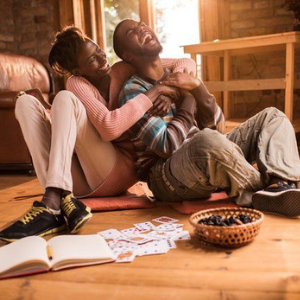
Gender-based violence (GBV) is not just a serious and pervasive issue that affects people across all demographics in Nigeria; it also hinders societal progress.
You probably already know this, but GBV includes a wide range of harmful behaviours directed at people based on their gender. But while all genders are affected by this issue, women and girls suffer it the most.
Every now and again in Nigeria, reports of different forms of GBV, like rape, domestic abuse, femicide, and many more, make the news, and each time, we ask what can be done to stop this— the answer to that question is not a straight one, as deep fundamental societal issues and norms cause GBV but there is a major solution that can be used to reduce the prevalence of GBV— the law.
How to fight GBV with the VAPP Act
Even though there are several laws in place to combat Gender-based violence in Nigeria, this crime has remained a huge issue in the country, mostly because many victims do not understand the legal frameworks available for combatting it.
This article provides a guide to clear, actionable information about legal avenues available to victims of GBV in Nigeria; this guide will help lead victims to healing and justice.
Violence Against Persons Prohibition (VAPP) Act: The VAPP Act, enacted in 2015, is at the heart of Nigeria’s legal response to Gender-based violence. This landmark legislation represents significant progress in protecting individuals from various forms of violence, particularly women and girls.
What are the key provisions of the VAPP Act?
- Comprehensive Definitions: The VAPP Act defines various forms of violence, including physical, sexual, psychological, and economic abuse. This broad definition ensures that multiple forms of GBV are recognised and addressed.
- Penalties for Offenders: Offenders face severe penalties, including imprisonment ranging from two years to life, depending on the nature of the crime. This serves as a deterrent against GBV.
- Victim Protections: The Act guarantees confidentiality for victims and protects their identities throughout their legal proceedings. This encourages more victims to come forward without fear of stigma or retaliation.
- Access to Legal Representation: Victims can seek legal aid to navigate the complexities of the legal system, ensuring they have support during what is typically an overwhelming process.
- Protection Orders: This is a special legal tool in the VAPP Act designed to prevent further violence against victims. This order can be used to prohibit an abuser from contacting or approaching the victim. Section 28(1) of the Act allows victims to apply for protection orders that are effective throughout the country. Additionally, the Protection Against Domestic Violence Law (PADVL) in Lagos State provides further provisions for individuals in domestic relationships to seek such orders.
Step-by-step guide to reporting GBV
Reporting GBV is a crucial step in seeking justice and holding offenders accountable. Here’s how this can be done effectively:
Gather Evidence
Preserving evidence is crucial for constructing a compelling case against an offender. The types of evidence that can be collected include:
- Medical Reports: Obtain medical documentation that records any injuries sustained.
- Photographs: Capture images that clearly show visible harm.
- Eyewitness Accounts: Gather testimonies from individuals who witnessed the incidents, as their accounts can corroborate your story.
Reporting
Victims can report incidents at local police stations, NGOs specialising in GBV support, or through dedicated hotlines established for immediate assistance. These hotlines include:
1. International federation of women lawyers (FIDA) – 2347088496115
2. The Mirabel center – 08155770000, 08187243468, 07013491769
3. Women at Risk International Federation (WARIF) – 08092100009, 08092100008
4. Lagos DSVA – +2349167802222
When reporting, it is important to include details such as dates, locations, descriptions of the incident, and any witnesses who may have seen or heard what happened.
Legal Processes involved in the fight against GBV
The journey through the legal system can be daunting, but understanding each stage can help manage expectations:
1. Investigation
Once a report is made, law enforcement will gather evidence through interviews with witnesses and forensic analysis if necessary. Legal advisors play a crucial role in ensuring that victims’ rights are upheld during this phase. During this process, victims have certain rights, including the right to be treated with respect and dignity by law enforcement officials and the right to be duly informed about their case’s progress and any developments during investigations.
2. Prosecution
Once sufficient evidence is collected, charges are filed in court. Victims retain rights throughout the trial process; they should feel safe and supported while testifying and to ensure their comfort and safety, the court may implement measures such as closed hearings or allowing testimony via video link if there are concerns about intimidation.
3. Judgment
The outcomes may vary from conviction to acquittal based on the evidence presented. For example, if the accused is found guilty, appropriate sentencing measures may include restitution for victims—financial compensation for damages suffered due to violence.
The case timeline varies, but staying informed and persistent ensures better outcomes.
Profiles of Some Organizations Offering Pro Bono (free) Legal Support
- International Federation of Women Lawyers (FIDA) in Nigeria: Offers legal representation and advocacy for women’s rights while providing education on legal rights
- Women Impact Nigeria (WIN): Committed to combating social injustice and violence against women and girls through a comprehensive legal aid system.
- Mirabel Centre: Specializes in providing medical care and legal assistance specifically for survivors of sexual violence.
- LEEDAP: Provides free legal representation to poor and vulnerable victims of human rights violations.
- Project Alert: Focuses on raising awareness about GBV while offering support services such as counselling and legal aid.
These organisations play a crucial role in empowering victims by providing essential resources and support networks tailored specifically for those affected by GBV.
In addition to the VAPP Act, other relevant laws include the Criminal Code, Penal Code, and Child Rights Act. These laws collectively address various forms of violence and discrimination. For example, the Criminal Code outlines offences related to sexual violence, while the Child Rights Act provides specific protections for minors.
These laws operate at both federal and state levels, with some states, like Lagos and Ekiti, implementing additional gender-based violence laws that complement the VAPP Act. Understanding how these laws interact is essential for effectively navigating the legal landscape.
Gender-based violence is a grave issue, but victims are not powerless. Armed with knowledge of their rights and Nigeria’s legal framework, survivors can hold perpetrators accountable and begin their journey to healing. With the support of dedicated organisations and advocates, the path to justice becomes clearer and more attainable.
You are not alone. Seek justice, find support, and break the cycle of violence.
This article was written by the We Believe You Initiative.




